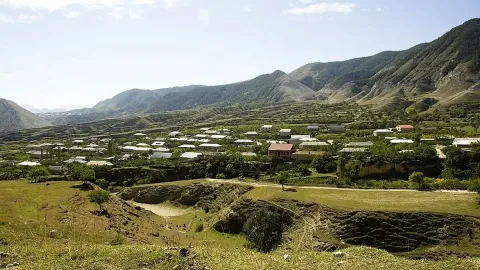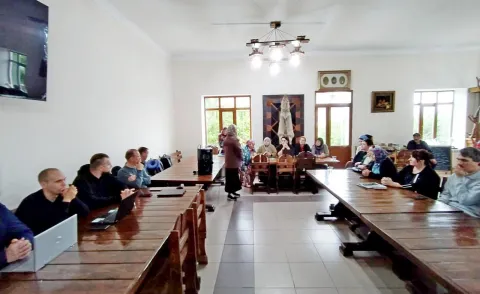On June 22-26, 2025, the Institute for Bible Translation conducted a seminar for new translators from various Dagestanian languages, including those with no writing system. During this training event, IBT launched several new projects that will be using oral Bible translation (OBT) methodology. New projects have now been launched in the Archi, Botlikh, Murego-Gubden, Tindi, Khvarshin, Tsez and Chirag languages. The seminar, structured as a blend of lectures on theory and practical sessions, marked the beginning of these initiatives.
Translation teams from already existing projects that are implementing OBT techniques also took part in the seminar: Aghul, Andi, Akhvakh, Godoberi, Hinukh, Hunzib, Karata, Tsudakhar and Chamalal. For these, the seminar became a platform for productive discussions and the next phase of their work. Oral Bible translation requires constant face-to-face interaction between translation team members due to the necessity of audio recording. Work in these languages is underway on the books of Ruth and Jonah and the Joseph story from Genesis. Additionally, two written Bible projects — Kabardian and Karachay — joined the seminar. New team members were trained, and seasoned participants shared their expertise, actively assisting in launching the new projects.
The training part of the seminar included lectures by IBT project coordinator and linguist Ketevan Gadilia, who gave an introduction to linguistics and semantics. Vasily Makarov provided speech management training, focusing on recording unwritten translations. Rasul Kudachinov instructed new project members on the fundamentals of the Render program, tailored specifically for oral Bible translation purposes including audio recording and editing.
In addition to the training and translation process, the seminar also included a cultural program. The participants visited the local folklore museum and got acquainted with the unique history and culture of the village of Kuppa, where IBT has been holding its field events on translator training for the past several years. IBT’s staff and guests were able to enjoy the sights of picturesque Dagestan, visit an underground waterfall, and taste the local cuisine.
The seminar ended with words of gratitude from local residents for IBT’s respect for their traditions and our ardent desire to contribute to the preservation of the diverse cultures, languages and dialects of the peoples of Dagestan.



